By Ravisankar KV
As the world gathers in Jeju Province, Korea, for World Environment Day 2025, the travel industry stands at a pivotal crossroads – ready to transform from a contributor to plastic pollution into a catalyst for global change. The challenge is clear, the opportunity immense: to transform from a significant contributor to plastic pollution into a powerful catalyst for global environmental stewardship.
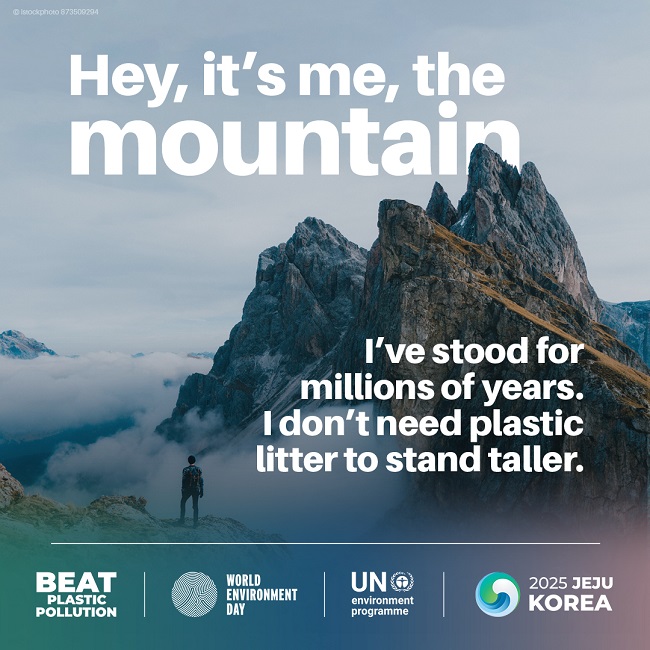

World Environment Day 2025, themed “Beat Plastic Pollution,” arrives at a critical juncture in our planet’s environmental timeline. Hosted by the Republic of Korea in the picturesque Jeju Province – an island ambitiously working toward becoming plastic-free by 2040 – the message is loud and clear: the global community must act now to end the plastic scourge that threatens our oceans, wildlife, and health.
While tourism has often been associated with environmental degradation, it holds immense, untapped potential to be a force for good. When reimagined through a lens of sustainability, tourism becomes not just a witness to environmental destruction – but a leader in reversing it.
The environmental timeline has reached a critical juncture. Plastic, a material of convenience, has permeated every facet of modern existence, its microscopic remnants infiltrating our bodies and ecosystems. Annually, an estimated 11 million tonnes of plastic find their way into aquatic environments, inflicting an economic toll valued between US$300 billion and US$600 billion. Yet, this colossal challenge is not insurmountable. Unlike many environmental crises, plastic pollution is largely preventable, the tools for its defeat already in our hands. World Environment Day 2025, amplified by the UNEP’s global #BeatPlasticPollution campaign, implores every individual, business, and government to embrace a new paradigm: refuse, reduce, reuse, recycle, and fundamentally rethink our relationship with plastic.
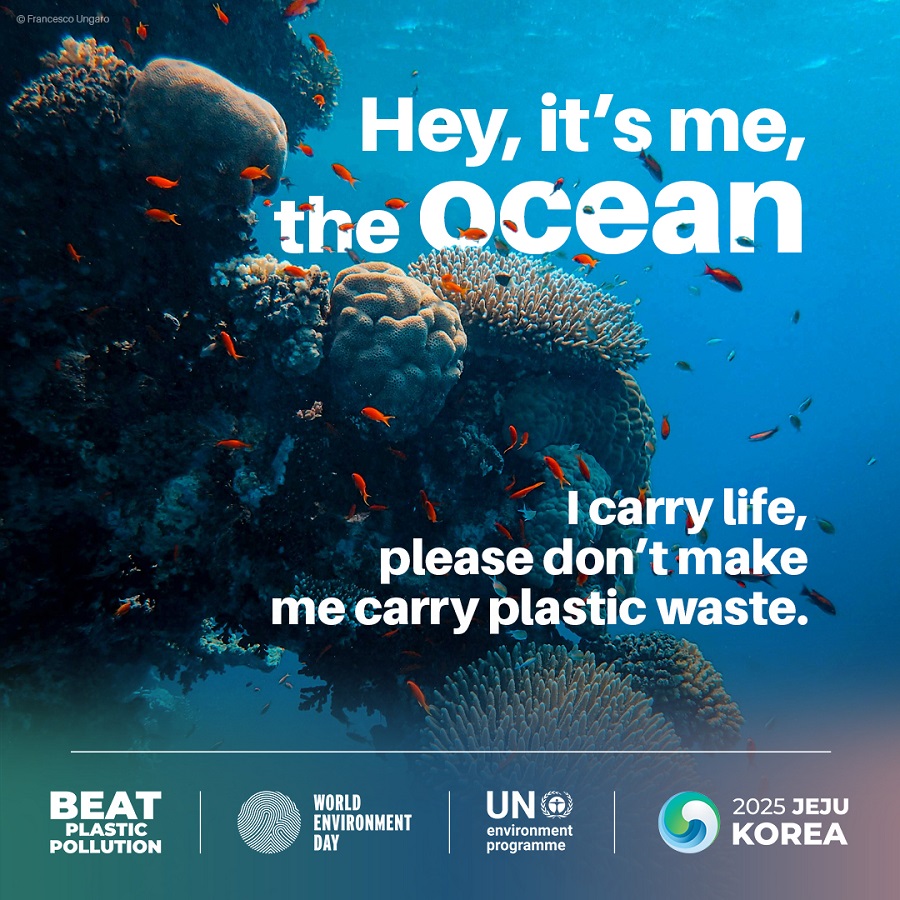

Tourism, a vibrant cornerstone of global economic and cultural exchange, stands in a complex relationship with this crisis – paradoxically, both a victim and a perpetrator of plastic pollution. The hidden cost of travel often manifests in a trail of single-use plastics. From airline meals encased in plastic to the ubiquitous water bottles in hotel rooms, these items have become almost synonymous with the travel experience. This is particularly acute in popular tourist destinations like beaches, islands, and remote heritage zones, where peak season waste surges can overwhelm local management systems. Many developing or remote areas lack adequate recycling or treatment infrastructure, leading to devastating consequences, especially for coastal regions where marine life is endangered by plastic ingestion and entanglement. The ensuing pollution not only degrades the natural attractions that draw visitors but also leads to decreased tourist interest and escalating cleanup costs for local communities.
Despite these daunting realities, a turning point is emerging. The tourism industry, with its vast reach and inherent connection to the planet’s most cherished landscapes, possesses the power and responsibility to spearhead the movement towards a plastic-free future. Across the globe, sustainable practices are gaining momentum. Pioneering destinations are leading the charge: Bali in Indonesia has courageously banned single-use plastics, Ooty in Nilgiris hills of Tamil Nadu and Kannur in Kerala actively promote plastic-free beach tourism, and World Environment Day’s host, Jeju Province, has innovatively introduced a disposable cup deposit system as a cornerstone of its mission to eliminate plastic waste.
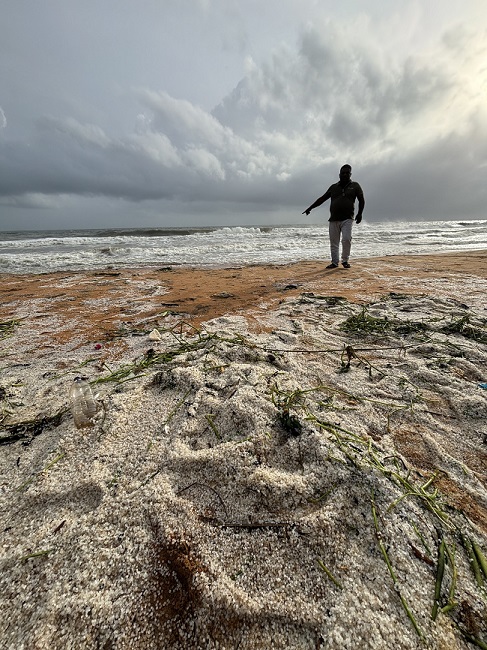

Within the hospitality sector, eco-innovations are flourishing. Hotels are increasingly swapping single-use plastics for more sustainable alternatives such as reusable glass bottles for water, bamboo toothbrushes, and organic toiletries in refillable dispensers. In Kerala, hospitality groups like CGH Earth have become notable leaders, championing near zero-plastic operations. Simultaneously, tourism boards and non-governmental organizations are intensifying efforts to educate travelers on responsible habits, encouraging the use of reusables and fostering a greater mindfulness towards waste generation. The infrastructure for change is also visibly growing, with an increasing number of eco-conscious destinations installing water refill stations, dedicated waste segregation bins, and promoting plastic-free souvenir shops.
To truly become a formidable force for environmental good, the tourism industry must evolve comprehensively. This transformation involves innovation in the very design of travel services, compelling airlines, hotels, and tour operators to rethink every touchpoint – from offering reusable dining kits on flights to partnering with suppliers committed to eco-packaging. Education and engagement remain paramount; simple yet effective initiatives like informative room reminders, impactful airport displays, and guidance from eco-conscious tour guides can significantly steer tourist behavior towards more sustainable choices. Furthermore, robust investment in waste infrastructure is critical, necessitating collaboration between public and private sectors to build and maintain effective recycling and waste disposal facilities in travel hotspots. This must be underpinned by supportive policy and regulation, with governments enforcing plastic bans where necessary, offering incentives for green initiatives, and actively promoting circular economy models within the tourism sector.
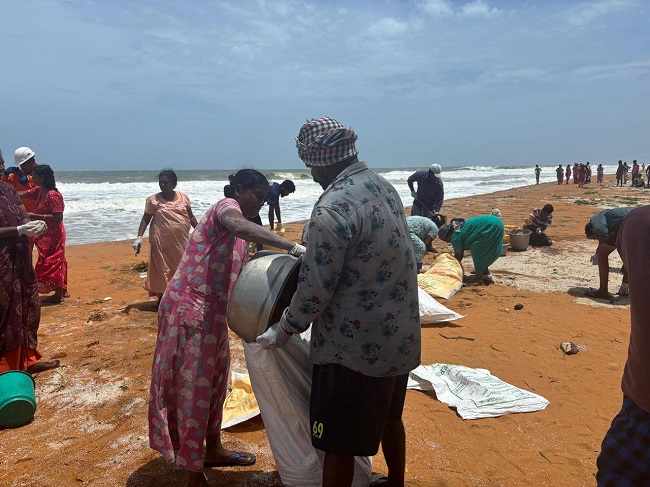

India, with its diverse landscapes and burgeoning tourism industry, offers compelling examples of local action creating global impact. Kerala, long celebrated as a model for sustainable tourism, continues to lead by example. As early as the 2000s, the state’s hospitality industry initiated a pioneering effort to curtail plastic bottle usage. This movement, which began at Xandari Cardamom County in Thekkady under Muthoot Hospitality and the leadership of Crist Inman, introduced UV-powered water purification systems and served drinking water in reusable glass bottles. This sustainable model was swiftly adopted across Kerala. In Munnar, the Munnar Destination Makers association launched a destination-wide initiative that has, over the years, resulted in an estimated reduction of at least five million plastic bottles in that region alone. This commitment continues with growing enthusiasm, with popular destinations like Thekkady, Kochi, Wayanad, and Kovalam implementing similar water treatment systems and embracing glass bottles, a move widely appreciated by guests, especially international tourists. Beyond bottles, major hotel brands are also eliminating single-use plastic toiletries, making reusable soap and shampoo dispensers a standard. This commendable action by Kerala’s tourism sector sets a powerful precedent for the rest of India, underscoring the vital need to replicate such initiatives across all tourist destinations to ensure a cleaner, more sustainable future for travel. The imperative to preserve destinations from the serene backwaters of Alappuzha to the misty heights of Mussoorie, Darjeeling, Shimla, Ooty, and the vibrant landscapes of Sikkim and Kashmir is not just for tourism, but for the well-being of generations to come.
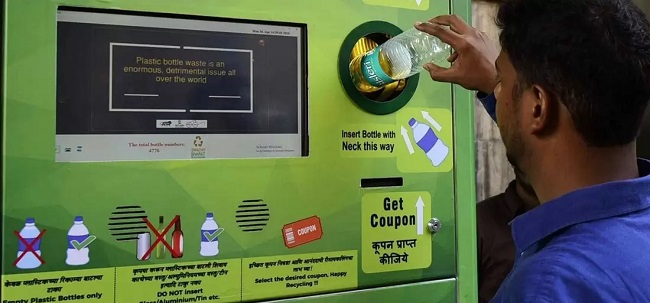

In the Nilgiris District of Tamil Nadu, Ooty has taken bold steps. The district administration has enforced a ban on 19 single-use plastic items, including PET bottles and carry bags, while the nearby Agasthiyar Biosphere Reserve in Kanyakumari has expanded this to 28 items. A landmark initiative in Ooty and Coonoor is the installation of five reverse vending machines (RVMs) at strategic tourist locations. These machines accept PET bottles, shred them, and reward users with Paytm cashback, encouraging responsible disposal. Each RVM, capable of processing up to 1,500 bottles, contributes to a circular economy by sending the shredded plastic to recyclers for transformation into textile fibers. The Madras High Court has strongly backed these measures with strict enforcement guidelines.
Further north, Sikkim, a Himalayan state renowned for its ecological sensitivity, has long been a pioneer. In 1998, it became the first Indian state to ban disposable plastic bags. Since then, it banned packaged drinking water in government offices and functions in 2016, alongside Styrofoam products, consistently promoting alternatives and fostering community cooperation. Despite these successes, the plastic burden from tourism remains a challenge, prompting the government to consider a complete ban on plastic water bottles for visitors, encouraging refills instead. These local actions, from Ooty’s tech-driven recycling to Sikkim’s progressive policies, demonstrate that meaningful change is achievable through a blend of enforcement, public participation, innovation, and sustainable alternatives, offering a replicable model for responsible tourism nationwide.


With over a billion people traveling annually, even minor behavioral shifts can aggregate into a transformative global impact. As the world edges closer to a Global Plastics Treaty, potentially by 2040, the tourism industry must align its practices with this visionary goal. World Environment Day 2025 is not merely another environmental observance; it is a clarion call, particularly for an industry with such expansive reach and influence.
The journey toward a plastic-free future is a collective endeavor. Tourists, travel professionals, and policymakers alike must fundamentally rethink the role of tourism—not as an accomplice to the plastic problem, but as a dedicated champion of the solution. By embracing sustainability, fostering innovation, and committing to cooperation, the travel industry can indeed transform itself into a proactive steward of the environment, preserving the natural beauty upon which it thrives and inspiring millions to tread more lightly on our planet. World Environment Day 2025 powerfully reminds us that “Travel is not just about exploring the world; it’s about protecting it.”
Let us begin that greener journey—today.
